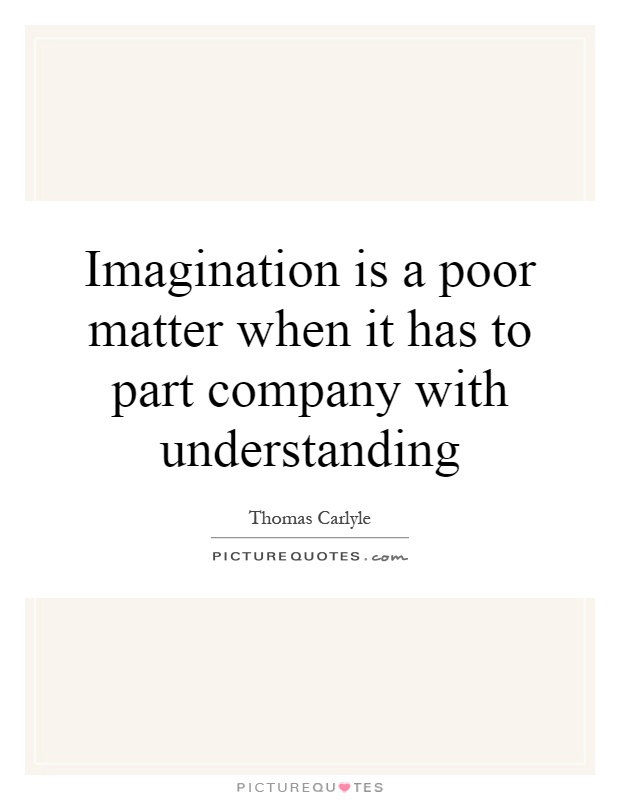Imagination is a poor matter when it has to part company with understanding

Imagination is a poor matter when it has to part company with understanding
Thomas Carlyle, a renowned Scottish philosopher, writer, and historian, once famously said, “Imagination is a poor matter when it has to part company with understanding.” This statement encapsulates Carlyle’s belief in the importance of combining creativity with rational thought in order to truly comprehend the world around us.Carlyle believed that imagination, while a powerful tool for creativity and innovation, must be tempered by understanding in order to be truly effective. Without a solid foundation of knowledge and comprehension, imagination can lead to flights of fancy that are disconnected from reality. In other words, imagination without understanding can be frivolous and unproductive.
Carlyle’s own work exemplifies the importance of combining imagination with understanding. In his seminal work, “Sartor Resartus,” Carlyle uses his vivid imagination to create a fictional character, Diogenes Teufelsdröckh, who serves as a vehicle for exploring deep philosophical ideas about society, religion, and the human condition. However, Carlyle’s imaginative musings are always grounded in a thorough understanding of history, literature, and philosophy, allowing him to make insightful and thought-provoking observations about the world.
Carlyle’s emphasis on the importance of understanding in conjunction with imagination can also be seen in his views on education. He believed that education should not only cultivate the imagination but also provide students with a solid grounding in the fundamentals of knowledge. Without a deep understanding of the subjects they are studying, students’ imaginative pursuits are likely to be shallow and lacking in substance.












 Friendship Quotes
Friendship Quotes Love Quotes
Love Quotes Life Quotes
Life Quotes Funny Quotes
Funny Quotes Motivational Quotes
Motivational Quotes Inspirational Quotes
Inspirational Quotes